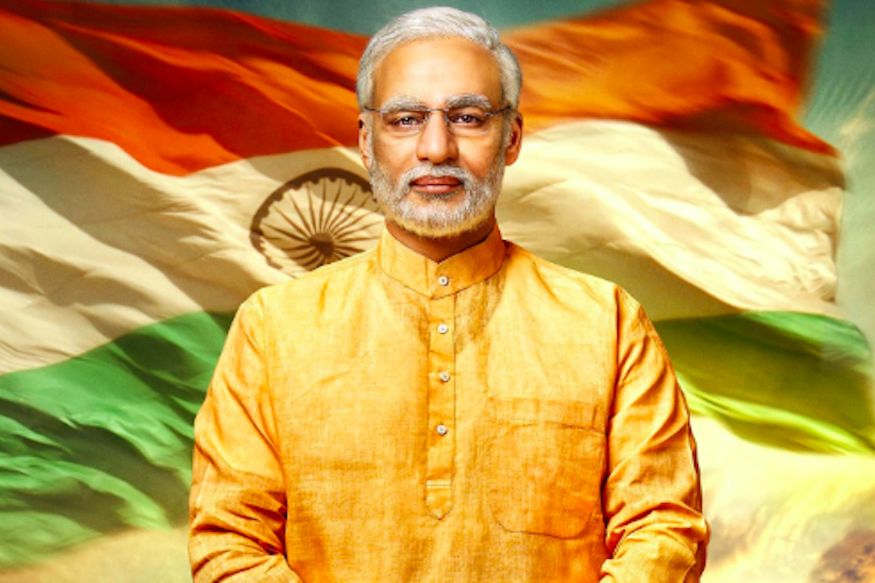Biopic Deifies Modi, Dismisses The Rest

When we read a biography or watch a biopic, we anticipate knowing all about a person, including his/her good as well as bad traits.
But when it comes to Bollywood, there is a trend to make lopsided biopics that only eulogize or justify the mistakes of the person in question—be it MS Dhoni: The Untold Story (2016), Azhar (2016) and Sanju (2018). And the Vivek Oberoi-starrer PM Narendra Modi (2019) is no different.
First, filmmaker Omung Kumar’s portrayal of Modi’s struggles since his childhood—his rise from a tea seller, his joining the RSS, and his taking charge as the Gujarat Chief Minister to finally becoming Prime Minister of India—is noteworthy. But then these are things that most of the audiences are aware of.
When we watch a biopic, we expect to see the unexpected: about sides of the person’s personality that we hardly know. For example, it would have been interesting to see the circumstances under which Modi got married and then separated from his wife, Jashodaben Narendrabhai Modi. Ironically, the movie shows Modi quoting Gautam Buddha. He turned down the only wedding proposal that came his way, followed by a slap from his mother and scorn from his father. But then it is a known fact now that Modi had got married in 1968. What about that? Like the BJP is accused of rewriting Indian history, the film attempts to rewrite Modi’s history.
Second, giving all credit to a person just because it is his biopic is to give him undue advantage over others. The immense contribution of Atal Bihari Vajpayee and Lal Krishna Advani in the formation and growth of Bharatiya Janata Party (BJP) is rather undermined when the entire focus shifts to Modi, who burst into political prominence much later. There is no mention of the Saffron party coming to power in the late 90s.
Moreover, Modi’s role in ‘Ekta Yatra’ in 1991 is entirely distorted by the filmmaker. The leadership of the then BJP president, Murli Manohar Joshi, in Ekta Yatra is completely ignored and instead the credit is given entirely to Modi.
It is also not necessary to show opposition leaders as mere caricatures in order to deify Modi. But that is precisely what happens in the film. Manmohan Singh, Sonia Gandhi and Indira Gandhi are portrayed as ineffective and completely useless—and often as puppets in the hands of scheming businessmen, bureaucrats or the media.
It was interesting to watch a young Modi renounce the material world, go to the Himalayas and spend a couple of years trying to understand the meaning of life and existence. But again, the reason for his coming back to join politics did not seem that convincing as portrayed in the movie. It was drastic. A sudden change towards the spiritual path is understandable. However, a sudden transformation from a spiritual high to being back in the grinds of the daily, material, mundane world was not convincing. Perhaps, a gradual transition could have been showcased to make it more believable.
Vivek Oberoi as Narendra Modi is a natural. There is no over-acting that Vivek has a tendency for. Apart from the acting skills of Vivek, perhaps the only commendable thing in the entire film was the makeup by renowned makeup and prosthetic artist Preetisheel Singh. The looks created for the characters of Narendra Modi, Indira Gandhi, Sonia Gandhi, Lal Krishna Advani and Atal Behari Vajpayee are quite commendable.
Special mention needs to be made of Zarina Wahab, who establishes a beautiful mother-son relationship in the film. Boman Irani as Ratan Tata, Kishori Shahane as Indira Gandhi and Manoj Joshi as Amit Shah seem persuasive and impressive as well.
Actor Darshan Kumar, unlike his calm presence in Mary Kom, grows aggressive in this film in his portrayal of a journalist. Again, his aggression is overshadowed by the towering, indomitable and all-encompassing presence of Modi. Similarly, no other character is allowed to bloom in the “seemingly magnanimous deity-incarnate” PM Narendra Modi.
The stalling of the movie by the Election Commission just before the general elections is indicative of the political intent of the movie. The release coincided with Modi’s big poll victory. It’s definitely, a win-win situation. Well, as the saying goes: “If you were born lucky, even your rooster will lay eggs!”
Go watch the film but only if you are a ‘Modi bhakt’; else you better sit back at home and catch all the political action on TV!

Comments are closed.